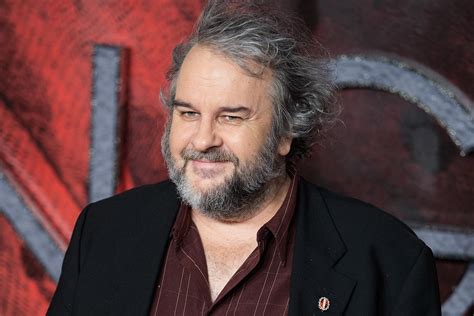To borrow a sentiment from the scholar Frank Kermode on a different subject, the superlative may seem excessive, but Peter Jackson may be the worst director ever. It is true that the public usually reserves this dubious honor for Ed Wood, mostly for Plan 9 From Outer Space.
But Wood’s films, Plan 9 most notably with its paper-plate flying saucer’s, Bela Lugosi’s dubbed-over scream, Vampira, and consistently lame dialogue (“That was close!”), have an eccentric awfulness that can easily be mistaken for genius. Yes, he operated on a shoestring budget. But who can doubt that a big-budget Wood film would be just as bizarre as one filmed on pennies?
Budget isn’t Jackson’s excuse. His Lord of the Rings and The Hobbit cycles had all the advantages money could buy, lacking only good direction. But Jackson, the ham-fisted pianist, the club-footed tap-dancer of directors, can make hash out of any material. Suffice it to say that by way of contrast he makes those risible Japanese cartoon versions of Tolkien seem like masterpieces.
Doubtless, Jackson has his fans, most of whom will take umbrage at any criticism of the master; so a case must be made. Due to the limitations of space, I can cite only a few of his offenses, but I will preface the argument by noting that Jackson cinematic sins are numerous enough to land him in a dozen Hells. But let’s get to the matter.
Sin number 1: Jackson doesn’t know an opportunity when he sees one.
The best movie Jackson directed was The Fellowship of the Ring, my favorite part of which (I mean, from the book) was the Mines of Moria episode. The flight to the Bridge of Khazad Dûm and safety was a real nail-biter. Tolkien set up the business with a nice blend of epic grandeur and subtly. To escape, the fellowship rushes down a cave while Gandalf stays behind to cast a spell on the door to stall their pursuers. A flash and an explosion follow shortly with the wizard’s being blown down the hall to the surprise of hobbits, elves, and men. Something of great power was on the other side of the door.
A great scene, huh? Sure, and with the added ingredient of suspense. But not good enough for Jackson. In fact, nothing remotely like it happens in his re-telling. Instead, before they escape down the cave a bazillion orcs, like cockroaches in a Texas crawlspace, descend from the ceiling, which ought to be the end. But when the “something” that should have been on the other side of the door appears, they run for it, as, indeed, does the fellowship. But a subtle, suspenseful, and, note, spectacular moment has been lost, and knowledgeable views have been cheated.
Here’s another example, this time from The Return of the King. In Tolkien, when Frodo puts on the Ring of Power in Chambers of Fire of Orodruin, Sauron becomes aware of him and his own peril, and, through sympathetic power, communicates all of this to the Nazgûl. Immediately the nine (or eight by this point) speed to prevent the Dark Lord’s disaster. Too late, of course. When the Ring is destroyed, they fall out of the sky in flames.
What more could Jackson want? This epic, fiery end was made for CGI. But it simply never happens—or anything even close to it. Jackson didn’t just lose an opportunity; he chose to lose it.
Sin number 2: Jackson possesses no sense of moderation.
Aristotelians will get this. When something is big, don’t make it small; at the same time, don’t make it gargantuan. I will give one extended example. In the book, before Eowyn the, lovely lass of Rohan, dispatches the king of the Nazgûl, she is, it hardly needs saying, at a disadvantage. He wields his weapon with such force that when he brings it crashing down on her shield, the shock breaks her arm.
In the movie this detail is too small. The Nazgûl must swing a mace the size of, let’s be fair, a VW Beetle. You think I jest? Look at the film or, better yet, at the “Special Edition” behind-the-scenes feature. The props man creates mace number one. From Jackson: Bigger! Maces two and three and four get the same mandate. Eventually, one senses the poor technician itching to cry out, “You want the damned thing the size of the Empire State Building?” But for Jackson, such a predictably smart-aleck retort would constitute a technical challenge.
Cecil B. DeMille surely felt bigger was better but knew when to quit. One senses the only impediment to Jackson with the mace and myriad tasteless decisions was the release date.
I might say more: about Howard Shore’s plodding music or Elijah Wood’s ten-thousandth “Noooooooo!” I’ve barely mentioned the disastrous Hobbit movies. But enough! Our only hope is that Jackson is finished with Tolkien.
But I suspect—in horror—that money and the chance to ruin yet another work by the British genius will be too tempting for this Australian assassin. The Silmarillion? He might get five mega-dreadfuls out of it. Farmer Giles of Ham or Tolkien’s gentle valedictory to his craft Smith of Wooten Major? I swear, if Jackson touches those delightful works, I’ll be looking for hit man.
And who could miss?
